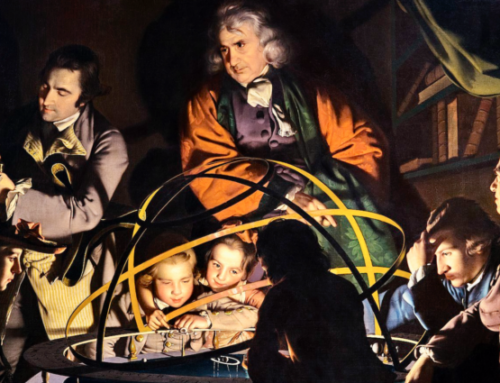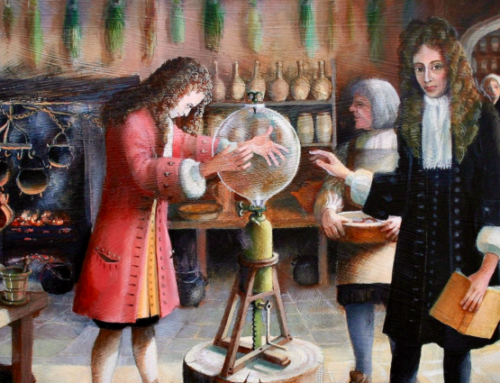 In a BBC poll of the hundred greatest Britons, conducted in 2002, many of the greatest Britons were conspicuous by their absence. Those who made the list included John Lennon, David Beckham, David Bowie, Princess Diana, Johnny Rotten of the Sex Pistols, and Freddie Mercury. The only saint to make the list was Thomas More, who was forced to sit uncomfortably beside both Henry VIII, who had ordered his execution, and Elizabeth I (Bloody Bess herself), who would order the torture and death of many religious dissidents. Perhaps the most damning indictment (literally) of this list of greatest Britons was the inclusion of the arch-satanist Aleister Crowley, who is evidently more popular in modern Britain than a host of writers, including G. K. Chesterton and C. S. Lewis, neither of whom made the grade as being “great.”
In a BBC poll of the hundred greatest Britons, conducted in 2002, many of the greatest Britons were conspicuous by their absence. Those who made the list included John Lennon, David Beckham, David Bowie, Princess Diana, Johnny Rotten of the Sex Pistols, and Freddie Mercury. The only saint to make the list was Thomas More, who was forced to sit uncomfortably beside both Henry VIII, who had ordered his execution, and Elizabeth I (Bloody Bess herself), who would order the torture and death of many religious dissidents. Perhaps the most damning indictment (literally) of this list of greatest Britons was the inclusion of the arch-satanist Aleister Crowley, who is evidently more popular in modern Britain than a host of writers, including G. K. Chesterton and C. S. Lewis, neither of whom made the grade as being “great.”
The gross and grotesque nature of the list as a sordid reflection of the sort of people who modern Britons believe to be “great” reminded me of Chesterton’s quip that when people stop believing in God they do not believe in nothing but in anything. It also called to mind a visit to my native land several years ago. Finding myself in a pub in London’s East End, I had struck up conversation with an aging pop star who was offended by the crucifix lapel badge that I was wearing. In a bizarre inversion of one of those old Dracula films, he pulled a pentangle pendent from around his neck and waved it in front of me, as though to ward off the power of my Christian presence. He informed me that the pentangle was not a symbol of the occult or of black magic but was a pagan symbol. I did not have the patience to explain to him how true pagans, such as Homer or Aristotle, would have been horrified by his wacky and tacky new age dabblings and diabolings. He went on to explain to me that he kept three “sacred” books by his bed, each of which contained important aspects of the truth. One was the Bible, the other Zen Buddhism, and the third Mein Kampf by Adolf Hitler! Feeling that there was nothing else to be said, I sidled off into the company of a New York lawyer, now living in London, who was also prompted by the sight of my crucifix to wax lyrical about his own “religion,” which was essentially that there is no God because we are all gods, each one of us.
Taking my leave from this Godless “god,” I moved on, seeking some relatively sane company. It was not to be. An angry young man, reacting like one possessed by the sight of my crucifix lapel, informed me with malicious intensity that the Catholic Church was corrupt. He asked me whether I had heard of the Illuminati. I told him that indeed I had. He then informed me that the Catholic Church and the Illuminati were the same thing, and that they were part of a sinister conspiracy to enslave humanity. I tried to explain to him that the Illuminati were avowedly anti-Catholic and indeed heretical but he was not interested in hard historical facts or any rational discussion and insisted that the present Pope was a member of this ominous secret societyi. Leaving him to his bizarre beliefs, I shook the “post-Christian” British dust from my feet and longed to return to the relative sanity of South Carolina.
Having mused somewhat bitterly about my experience of the secular fundamentalist culture of contemporary Britain, I ask myself why I am still happy to identify myself as an Englishman. Pondering the question, the words of Rudyard Kipling spring to mind:
If England was what England seems
An’ not the England of our dreams,
But only putty, brass, an’ paint,
‘Ow quick we’d chuck ‘er! But she ain’t!
Let’s begin by saying what England ain’t. She ain’t the people who happen to be living within her “sceptred isle” at any particular time, and she certainly ain’t the Muslim fundamentalists living within her towns and cities who feel nothing but contempt for her. Nor is she the millions of godless heirs of anglo-saxons and celts, alive today, who know nothing of their roots and who think England is nothing more than a football team to be cheered drunkenly during the world cup every four years. And England ain’t the sundry secular fundamentalist fanatics and weird occultists who were so incensed by my wearing of a crucifix. England ain’t any of these things, even though these things are the ugly face that passes for England today. This is only “what England seems” not what she is.
“Seems, Madam! Nay, it is. I know not ‘seems.'” Hamlet knows the difference between that which is and that which only seems to be, and so do I.
Here is what England is:
She is more than a thousand years of uninterrupted Christian faith, from St. Alban, the first English martyr, killed during the Roman occupation in the 3rd century, to the martydrom of Saints John Fisher and Thomas More in 1535. She is the hundreds of martyrs killed during the penal times following Henry VIII’s usurpation of the church in England. She is Beowulf and “The Dream of the Rood”; she is Sir Gawain and Chaucer; she is Byrd and Tallis; she is Walsingham and Glastonbury; she is Austen and Dickens, Newman and Hopkins, Chesterton and Belloc, Waugh and Wodehouse, Lewis and Tolkien. She is Shakespeare! This is the England of our dreams, and our dreams are so much more real, in any meaningful sense, than the nightmare that the modern inhabitants of England seem to prefer. This is the England to which I owe my allegiance; the England of the saints and martyrs; the England of the poets and bards; and the England of the Greatest Bard of all. I will conclude by letting the Bard wax lyrical on the England of my dreams:
This royal throne of kings, this sceptered isle,
This earth of majesty, this seat of Mars,
This other Eden, demi-paradise,
This fortress built by Nature for herself
Against infection and the hand of war,
This happy breed of men, this little world,
This precious stone set in a silver sea,
Which serves it in the office of a wall
Or as a moat defensive to a house,
Against the envy of less happier lands,
This blessed plot, this earth, this realm, this England.
Books on the topic of this essay may be found at The Imaginative Conservative Bookstore.







I found the list (it’s easy enough to google) and some of those included are pretty silly. Of the ones not on the list and you didn’t include, I would add, Blessed Julian of Norwich, the first woman to have published a book in English, and John Milton and the translators of the King James Bible. I’m not particularly a fan of the KJV but it had a huge impact on Britain through the centuries. Oh Samuel Johnson too, for obvious reasons. And you might as well throw in those that created the Oxford English Dictionary.
That’s why it’s home to me! But the most popular film of all time is always a recent one, because no one can remember the older and better ones (so beckhams trump burke and pitt etc etc)
And I don’t know how the BBC survey was conducted, but a dozen years ago online the same historic figure was overwhelmingly voted the best leader, the best dancer, the smartest, the best writer, the most handsome, etc etc. His name? Attaturk. The survey captured the imagination of Turks, their media and schools. So vox pop polls cannot be wholly trusted! (Satanists take note)
“I was born, lucky me, in a land that I love. Though I’m poor, I am free.” Ray Davies
While there is much to admire about England, there’s still the sour taste of repression from England for us Welsh and Welsh-descended. Nevertheless, Chesterton and Churchill make up for The Plantagenets.
The quest for an enduring English identity and spirit has long been a great interest of mine. I think this article offers an insightful take on that quest. However, I’m not sure it quite solves the thorny issue of changing identities over the centuries.
I’m a high church Anglican (Anglo-Orthodox), and I have the greatest sympathy for the England of the Middle Ages, but I don’t think that post-Reformation England, Anglican and Protestant England, can be entirely removed from English identity, as this article seems to imply. Cranmer, Elizabeth I (even if I agree she was not as white, and her sister not as black, as she has often been made out), Richard Hooker, the Jacobean and Caroline divines, KJV, Milton, Bunyan, Dr. Johnson (whom Manny mentions), and many others who are Anglican or even non-conformist are in some sense part of English identity.
Whilst I would ground English identity more in the Anglo-Saxon period and the Middle Ages than in Protestantism, I do think that there needs to be some kind of accommodation for aspects and figures of Protestant England as a limited but real embodiment of undying England.
I think what mr Pearce is trying to say that the Greatest and most faithful sons of England were Catholics or Anglo Catholics. St Augustine the first Archbishop of Canterbury was sent by one of the greatest pope’s in history (St Gregory the Great). So therefore the very being of English Christendom is Roman Catholic. When the English reformers tried to divorce the Pope from the English Church it would only lead to confusion and mayhem. Though I disagree with him on the idea of Britain versus England I would strongly agree with him that the very Being of English Christians will always have a spiritual connection to their Anglo Saxon Catholic ancestors.
Johnny Rotten-‘no future in England’s dreaming’ is, I believe, a catholic sentiment.